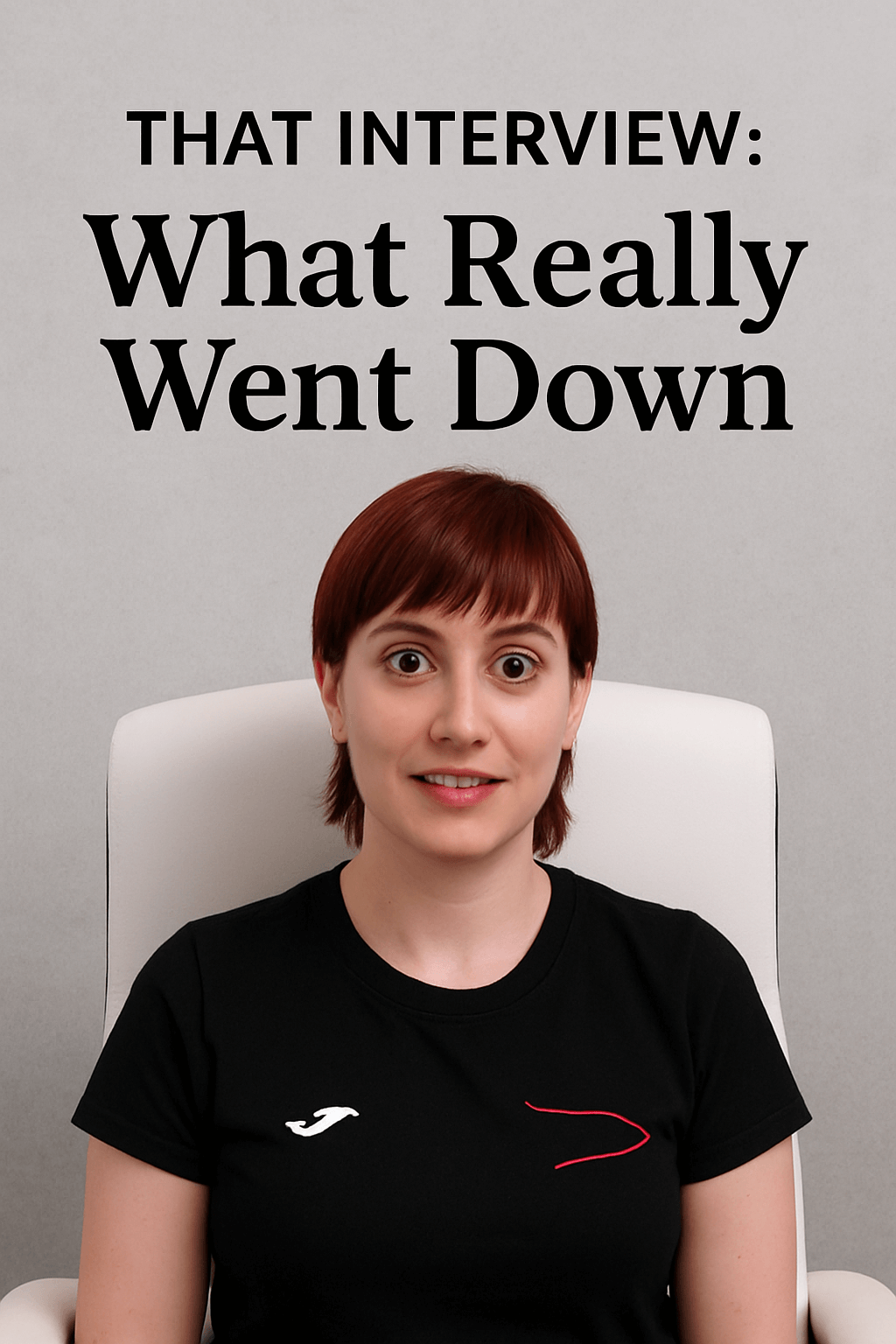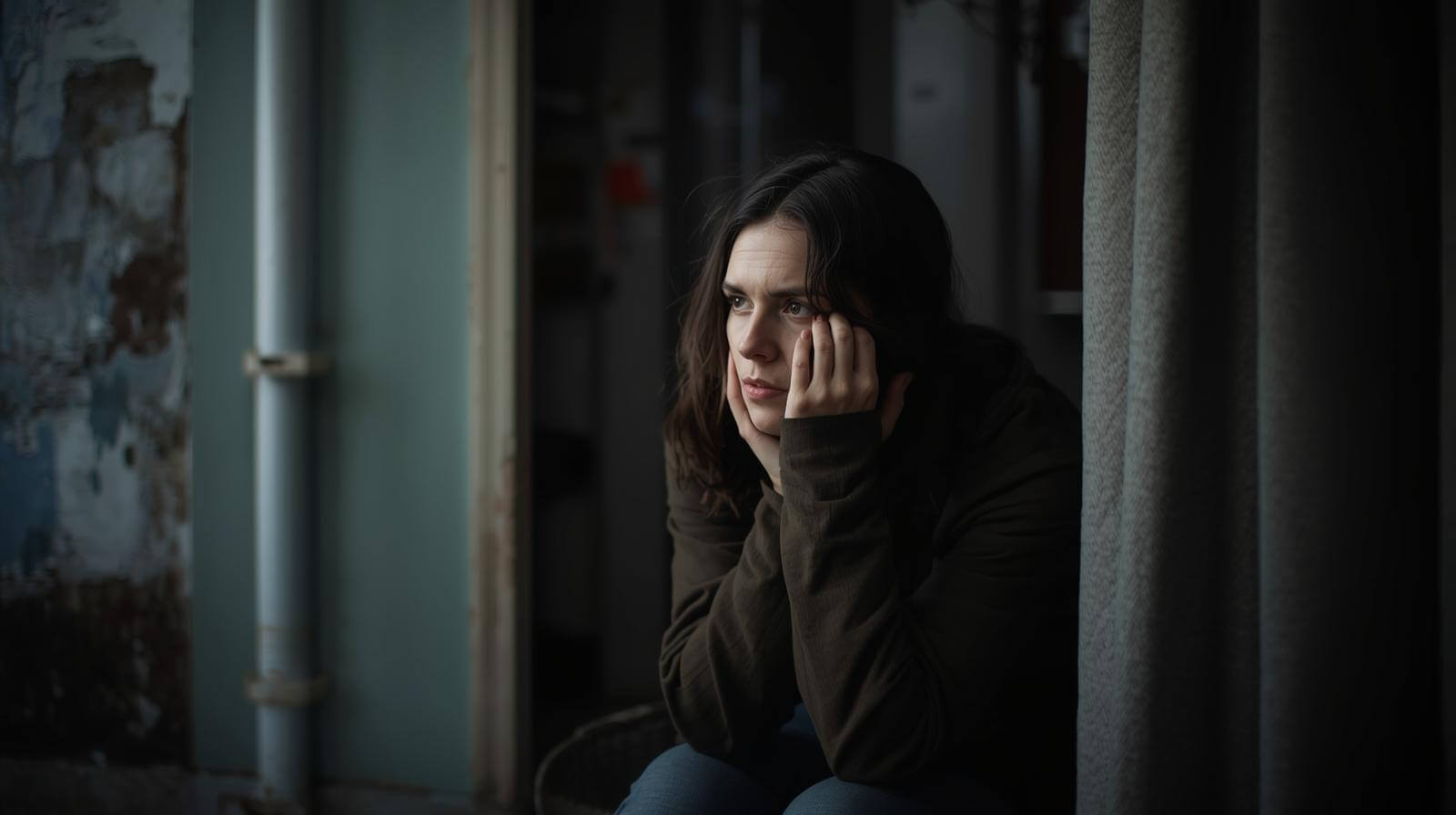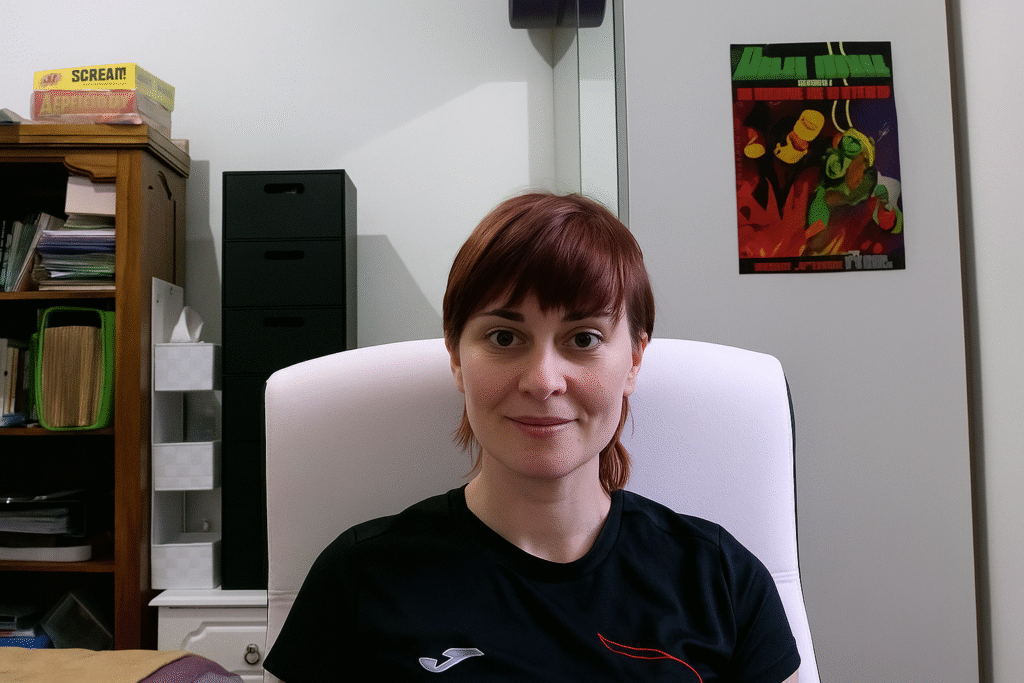Back in January 2021, something happened on BBC Wales Today that nobody saw coming. Yvette Amos, a woman from Cardiff, joined a video call to talk about losing her job during the pandemic. What should have been a straightforward interview about unemployment turned into one of those internet moments that just won’t go away.
The thing is, Yvette wasn’t trying to become famous. She just wanted to share her story about struggling to find work during lockdown. But sometimes life has other plans.
Who Is Yvette Amos Really?
Before the Internet Knew Her Name
Yvette Amos lived a pretty normal life in Cardiff before that interview. She wasn’t a celebrity or looking for attention. She worked part-time at a local bar and also did research work on health and social care projects. When COVID hit, she lost both jobs, just like millions of other people across the UK.
The Work Nobody Talks About
Here’s what most people don’t know: Yvette actually has a background in serious research work. She’s been involved in studies looking at how hospitals handle alcohol-related emergencies and other health service issues. That’s real, meaningful work that helps shape how we take care of people.
So when BBC Wales asked her to talk about unemployment during the pandemic, she wasn’t just some random person off the street. She had genuine experience and something real to say. Which makes what happened next even more frustrating, honestly.
That Interview: What Really Went Down

Why She Was on TV in the First Place
It was January 26, 2021. The UK was still dealing with lockdowns, and people were struggling. Yvette Amos agreed to do a video call interview with BBC Wales Today to talk about what it’s like when you can’t find work, when money’s tight, and when you’re worried about the future.
She was speaking from her home in Cardiff, just being honest about a tough situation that loads of people could relate to.
The Moment Everything Changed
So there’s Yvette, talking about real struggles, and what do people notice? Not what she’s saying. They spot something on a bookshelf behind her. Tucked between books and games was this bright, colorful thing that… well, let’s just say it looked exactly like a sex toy.
And that was it. Within minutes, screenshots were flying around Twitter, Reddit was going crazy, and suddenly everyone was talking about Yvette Amos—but not for the reasons she showed up to talk about.
How Fast It Spread
A journalist named Grant Tucker tweeted about it being maybe the best guest background ever on BBC Wales news. That tweet blew up. Then it hit Reddit. Then Instagram. Then it was everywhere. By the next day, people around the world were seeing this clip from a small Welsh news program.
The Internet Does What the Internet Does
Memes, Jokes, and Everything In Between
People had a field day with this. The memes came fast. Some were funny, some were kind, some were probably a bit mean. But here’s the thing—most people weren’t laughing at Yvette as a person. They were laughing at the situation.
Why? Because we’ve all been there in some way. During the pandemic, everyone was doing video calls from home. Kids would run through the background, cats would jump on keyboards, dogs would bark. We all had those “oh crap” moments when we realized what was visible behind us.
Yvette Amos just had a bigger “oh crap” moment than most of us.
Why It Hit Different
This wasn’t just funny because of what was on the shelf. It was the timing. January 2021 was still deep pandemic days. Everyone was exhausted from Zoom calls, from trying to look professional while working from their bedrooms, from pretending everything was fine when it wasn’t.
Yvette’s moment felt real. It felt human. It was the opposite of all those perfectly curated backgrounds we’d been staring at for months.
What This Says About All of Us
Real Life vs. Instagram Life
The Yvette Amos thing sparked some interesting conversations. For months, everyone had been trying so hard to make their homes look professional on camera. Blurring backgrounds, buying ring lights, making sure nothing embarrassing was visible.
And here comes Yvette, not caring about any of that, just showing her actual life. Some people found that refreshing. Others thought it was unprofessional. But honestly? Most people just found it relatable.
Missing the Point Completely
Here’s what bothers me about the whole thing. Yvette Amos came on that show to talk about something that mattered. She’d lost her jobs. She was struggling. She wanted people to understand what unemployment really feels like.
Instead, everyone focused on her bookshelf.
That tells you something about how we consume media now, doesn’t it? Something funny or shocking will always get more attention than something serious, even when the serious stuff really matters.
The weird thing is, because of the viral moment, way more people heard about unemployment issues than probably would have otherwise. So maybe it worked out? But not in the way anyone planned.
Life After Going Viral (When You Didn’t Want To)

How Yvette Handled It
From what we can tell, Yvette Amos handled this situation about as well as anyone could. She didn’t try to milk it for fame. She didn’t go on a media tour. She didn’t start an Instagram account to cash in.
She basically just… moved on with her life. Which, honestly, shows way more character than a lot of people would have in the same situation.
Still Doing Real Work
While people were making jokes online, Yvette kept working on research projects and doing the professional stuff she was doing before. Her name still shows up in academic work and health research.
So yeah, the internet might remember her for one awkward moment, but her actual life is about way more than that.
The Thing About Digital Footprints
Here’s the reality though: once something goes viral, it’s out there forever. Even now, years later, if you Google Yvette Amos, that interview is what comes up. That clip still gets shared. New people discover it and share it again.
That’s what’s kind of unfair about viral fame when you didn’t ask for it. You can’t take it back. You can’t delete it. It just exists, permanently attached to your name.
What We Can All Learn From This
Check Your Background (Seriously)
The obvious lesson: before you get on any video call, do a full 360 of what’s behind you. And I mean really look:
- What’s on your shelves?
- What’s hanging on your walls?
- Can people see into other rooms?
- Are there any reflections in mirrors or windows?
- What would you think if millions of people saw this?
Sounds paranoid? Maybe. But after what happened to Yvette Amos, a little paranoia makes sense.
But Also, Be Human
At the same time, we can’t all live like we’re on camera 24/7. Your home is your home. Life is messy. Not everything needs to be perfect and curated.
There’s got to be a middle ground between Yvette’s approach (not checking at all) and obsessively staging every inch of your background like it’s a magazine photoshoot.
Have Some Empathy
If there’s one thing the Yvette Amos story should teach us, it’s this: think before you share. Yeah, the clip was funny. But it was also someone’s real life, someone who didn’t sign up to become a meme.
When you see something like that, ask yourself: would I want millions of people sharing my embarrassing moment? Would I want my kids or parents seeing me turned into a joke?
That doesn’t mean never laugh at anything. Just means maybe think twice before hitting that share button.
Other People This Has Happened To
The BBC Dad
Remember Professor Robert Kelly? He was doing a serious BBC interview about Korean politics when his kids burst into the room, followed by his wife sliding in to grab them. That went mega viral too.
The difference? That was wholesome. Kids being kids. Nobody got hurt. Everyone just laughed and related because, yeah, that’s what working from home with kids is like.
The Difference With Yvette’s Situation
The Yvette Amos moment was different because it wasn’t family-friendly. It was adult. It was awkward in a different way. And because of that, it sparked different conversations about privacy, judgment, and what’s “appropriate.”
Both moments show how unpredictable video calls can be. But they hit differently because of what was actually in the background.
The Psychology of Why We Share This Stuff

Why It’s Funny (To Us)
Look, there’s a reason this stuff spreads. It’s called schadenfreude—feeling a little bit of pleasure when something embarrassing happens to someone else. Sounds mean when you say it like that, but it’s human nature.
Plus, there’s relief mixed in there: “Thank god that wasn’t me.”
When Humor Crosses a Line
The tricky part is figuring out when sharing something funny becomes sharing something cruel. Most people who shared the Yvette Amos clip probably didn’t think they were being mean. They just thought it was funny.
But add up a million people doing that, and suddenly Yvette’s having one of the worst weeks of her life while everyone else is having a laugh.
There’s no easy answer here. Just something to think about.
How This Changed Video Call Culture
Everyone’s More Careful Now
After the Yvette Amos incident (and others like it), people got way more paranoid about their backgrounds. Sales of plain backdrops and ring lights went up. More people started using virtual backgrounds.
Companies started including “check your background” in their remote work training. It became a thing.
The Virtual Background Boom
Zoom and Teams made bank on virtual backgrounds. Suddenly everyone could look like they were calling from a professional office, even if they were actually sitting in bed.
Some people think that’s fake. Others think it’s smart. Either way, Yvette Amos probably wouldn’t have had her moment if virtual backgrounds had been more common back then.
What About BBC and Media Responsibility?
Could They Have Prevented This?
Some people asked: shouldn’t BBC producers have noticed? Shouldn’t they have said something before going live?
Maybe. But in reality, producers are juggling a million things during a live show. They’re not examining every item on every shelf of every guest’s home.
Still, after this happened, you can bet news organizations everywhere updated their guidelines.
Privacy in the Social Media Age
Here’s a bigger question: should news outlets have the right to use your interview if it goes viral for the wrong reasons? Yvette Amos consented to be on TV. But did she consent to become a worldwide meme?
These are complicated questions that we’re still figuring out as a society.
Regional Differences in How People Reacted

In Wales and the UK
For people in Wales who actually watch BBC Wales Today, there was more context. They knew the show. They understood Yvette was a local person trying to share a real story about real problems.
The humor was there, but so was the recognition that she was talking about something serious.
Around the World
For everyone else discovering this clip online, it was pure entertainment. No context about unemployment. No understanding of who Yvette Amos was or what she was trying to say.
Just: “Haha, look what was on her shelf!”
That’s the problem with viral content. It loses all its original meaning.
Could She Have Made Money From This?
The Monetization Question
Some people who go viral turn it into a career. They do sponsorships, start YouTube channels, write books, do speaking tours.
Yvette Amos didn’t do any of that. And good for her, honestly.
Why She Probably Made the Right Call
Here’s the thing: the type of viral fame Yvette got wasn’t the kind you can really monetize without making things worse. What was she going to do, become the spokesperson for adult toys? Start a comedy career based on one embarrassing moment?
Sometimes the smart move is to just let it blow over and get back to your real life. Which seems to be exactly what she did.
Teaching Moments (Literally)
This Became a Case Study
Believe it or not, the Yvette Amos interview is now used in university courses. Communication professors use it to teach about:
- Professional video presence
- How viral content spreads
- Ethics in media sharing
- Managing your digital reputation
So Yvette accidentally became educational material. There’s probably a PhD thesis out there somewhere analyzing this whole thing.
What Students Learn From It
The lessons are actually pretty valuable:
- Always be aware of your surroundings on camera
- Understand that anything public can become permanent
- Think about the human behind viral content
- Consider the ethics of sharing embarrassing moments
Not bad for an accidental lesson.
Where Are We Now?
Four Years Later
It’s 2025 now. The Yvette Amos interview happened over four years ago. But you know what? It still gets shared. New people discover it all the time.
That’s the thing about the internet. Nothing really dies. It just cycles around again and again.
What Changed
Video calls are even more normal now. We’ve all had years to perfect our backgrounds, our lighting, our camera angles. We’ve learned.
Some of us learned from our own mistakes. Others learned from Yvette’s.
The Bigger Picture
Looking back, the Yvette Amos moment represents a time when we were all figuring out this new way of living and working. We were making it up as we went along. We were tired, stressed, and not quite sure what the rules were anymore.
In that context, what happened to Yvette could have happened to anyone. It just happened to happen to her.
Frequently Asked Questions (The Real Talk Version)
Who actually is Yvette Amos?
Yvette Amos is a woman from Cardiff, Wales. Before becoming accidentally internet famous, she worked in research on health topics and at a local bar. She’s not a celebrity or influencer—just a regular person who had something to say about losing her job during COVID.
What exactly was on the shelf?
Let’s be adults here: it looked like a sex toy. A big, colorful one. Was it? Who knows. Could it have been something else? Maybe. But it looked like what everyone thought it looked like, and that’s what mattered.
Did she know it was there?
Probably not? Or if she did, she probably didn’t think the camera would pick it up, or that anyone would notice, or that it would matter. We’ve all had those moments where we realize too late that something’s visible on camera.
How did she react afterwards?
Yvette Amos kept a pretty low profile. She didn’t do the interview circuit. She didn’t post about it on social media. She basically handled it with dignity and moved on with her life.
Is the video still out there?
Yep. It’s on YouTube, Twitter, Reddit, and various news sites. Once something’s on the internet, it’s pretty much there forever.
What was she actually there to talk about?
Unemployment. She’d lost both her jobs during the pandemic and wanted to talk about how hard it was to find work, the stress it caused, and what it’s like to struggle financially. Important stuff that got completely overshadowed.
Did this ruin her life?
Doesn’t seem like it. Her name still appears in research work and professional contexts. She seems to have kept her career on track despite the viral moment.
Could this happen to anyone?
Absolutely. That’s what’s scary about it. Any one of us could have one moment of carelessness and end up as a meme. That’s life in 2025.
What should I do to avoid this happening to me?
Before any video call, do a thorough check of everything visible behind you. Better yet, use a virtual background. And if you have anything questionable anywhere in your house, maybe just move it to a closet before getting on camera.
Is it okay to laugh at this?
That’s up to you and your conscience. The situation is objectively funny. But there’s also a real person involved who probably didn’t enjoy being turned into a worldwide joke. Maybe you can find the humor without being cruel about it?
Did BBC get in trouble for this?
Not really. They aired a live interview. They didn’t create the viral moment—the internet did. But I bet they updated their pre-interview procedures afterwards.
How long did people talk about this?
The initial viral wave was a few weeks. But it keeps coming back. Even now, years later, it’ll trend again when someone new discovers it and shares it.
Final Thoughts: What This All Really Means
It’s About More Than One Moment
The Yvette Amos story isn’t just about an embarrassing background detail. It’s about how we live now—constantly on camera, constantly one mistake away from becoming public property, constantly trying to balance being real with being professional.
It’s about how fast information spreads and how little control we have once something goes viral.
It’s about the gap between what we intend to communicate and what people actually pay attention to.
The Human Side
At the end of the day, Yvette Amos is just a person. She wanted to talk about struggling to find work during a pandemic. That’s a real, valid, important thing that affected millions of people.
Instead, she became known for something completely different. That’s got to be frustrating. Maybe even hurtful. But she handled it with more grace than a lot of people would have.
What We Can Do Better
As a society, we could probably stand to be a little more thoughtful about what we share and why. Just because something’s funny doesn’t mean it needs to be spread to millions of people.
We could remember that viral moments involve real humans with real feelings and real lives beyond that one clip.
And we could maybe, just maybe, focus a bit more on the substance of what people are saying instead of getting distracted by what’s on their bookshelf.
Lessons That Actually Matter
If you take anything from the Yvette Amos saga, take this:
- Check your background before video calls (duh)
- Once something’s online, it’s permanent
- Try to see the person behind the viral moment
- We’re all one mistake away from being a meme
- Life’s messy, and that’s okay—just maybe hide the messy parts before going on BBC
Moving Forward
Yvette Amos will probably always be remembered for that interview. That’s just how the internet works. But hopefully, she’s also remembered as someone who tried to speak up about real issues, who handled an awful situation with dignity, and who reminds us all to be a little more careful—and a little more kind.
Because tomorrow, it could be any one of us on the other side of that viral video.
Final note: If you’re reading this because you’re about to do a video interview—check your background. Seriously. Learn from Yvette. Don’t let this happen to you.
